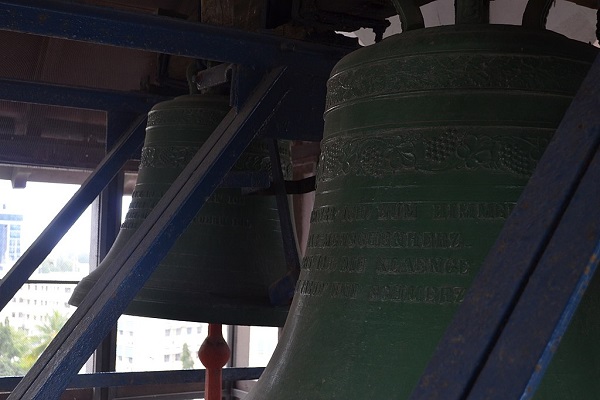
It was an overlooked relic of the Nazi era
The Lutheran Church in Germany said that a swastika had been taken off a church bell in Schweringen[/tweetit], a town in the northwest of the country. The church came to know that the Nazi symbol was removed when the pastor of the church informed his Hannover counterparts that the inscription was no more to be found on the bell’s surface. It also sent a detailed note, but the Lutheran Church did not disclose its contents.
Swastika Finally Removed from Lutheran Church Bell[/tweetthis]
Die Harke a local newspaper published a photograph of the church note. The note read “spring cleaning 2018.” The said church did not use the bell in 2017 after discovering the Nazi swastika. Local church officials then took the controversial decision to use the bell again. The pastor of the church was against this decision. The Schweringen church said on April 3 it will think about how to proceed and whether it will take legal action.
The incidence of church bells having swastikas was quite common during the Nazi regime. The end of the Second World War saw such symbols being removed from all public buildings whenever possible. Many Germans, however, insist on keeping the residues of that turbulent period to initiate dialogue involving injustice and violence.
Hahaha
anti-fascists have removed a swastika from an old Nazi church bell and left a message with the title 'spring cleaning' pic.twitter.com/Y47kH8dnDD— Comrade Lotl (@ComradeLotl) April 4, 2018
Many Germans believe it is important to remember their country’s violent history as it will inhibit the rise of the far right in present-day Europe. The era of ultra-right wing politics being taboo in the continent is long gone. Hate politics have now gone mainstream. A good example is of a Bulgarian politician terming the Roma minority residents in the country as “ferocious humanoids.” The Prime Minister of Hungary was recorded saying that white Europeans should not keep relations with Arabs or Africans.
Many European countries have moved so far to the right that Nazi collaborators are feted as defenders of respective countries or as anti-communists. Hungarian and Polish Governments have systematically eroded courts’ independence and also the media. Many human rights groups now warn that there are clear signs of democracy in peril within countries which were once under the now defunct USSR’s influence. What is frightening is that the rise of Neo-Nazis has pushed saner conservative European parties being sidelined by the public when it comes to votes.
